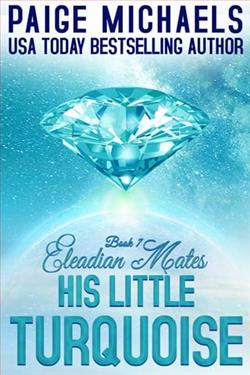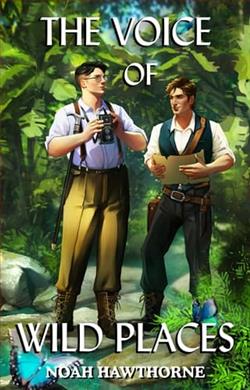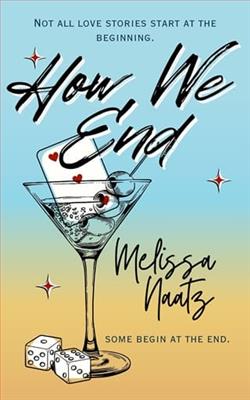Page 72 of A Deeper Darkness
“I know that.”
“So now you cope with loss by being stupid?”
“Hey,” Sam shot back. “Mind your own business.”
“Sweetheart…” The look on her face must have been terrifying. “Dr. Owens,” he began again. “You know better than this. Three people are dead. One whole family is missing. For all we know, you’ve read something in the journals that Whitfield thinks can tie him to the murders, and this is a well-planned trap to get you off on your own, away from our protection. Out in the wilderness, where no one will know where you’ve gone. It’s pretty easy to hide a body in the woods, you know. Takes a while for us to track it down.”
Sam hadn’t considered that she might be a target. That thought was sobering, to say the least. She hadn’t felt threatened by Whitfield in any way at the funeral. Of course, as Hart pointed out, that was probably the idea. Spider to the fly. Coaxing her into a web of deceit. Sadly, she found herself unafraid. She didn’t have any reservations about putting herself in harm’s way. Not anymore.
“I’m coming with you,” Sam said.
Hart’s phone rang. He opened and listened, then nodded curtly and said, “Yeah. On our way.” He shoved the phone in his pocket and said, “Yes, you are. Pack a bag. We’ll be gone overnight. But first, we need to make a stop. You want to play detective? Now’s your chance.”
Chapter Thirty-Six
Washington, D.C.
Dr. Samantha Owens
Sam edged her way into the Old Ebbitt Grill. She stood by the hostess stand for a moment to get her bearings and quickly felt her ears start to ring. It was incredibly loud. Thursday night happy hour, and the place was packed. When she’d lived in D.C., Thursday was the night to go out. It was meant for singles, and new couples, a night to cast inhibitions to the wind and get gloriously, achingly polluted. Thursdays lasted well into Friday, the lines between the two blurring after too many pitchers accompanied by too many shots, and she’d spent more than one Friday morning in class hosting a wicked hangover. It had been well known in D.C. that Friday morning was not the time to schedule important meetings. She assumed that held true even now.
Back then, this bar had been filled to the gills with people both important and wanting to be, and cigar and cigarette smoke hung thick in the air. It was a stone’s throw from the White House and political operatives had graced its hallowed halls for decades. Deals were cut in the red leather booths, leaning onto one of four long bars, on the stairs down to the marble bathrooms. Deals and assignations and every other kind of vice—Old Ebbitt’s was more than a legend. It was a king maker.
And now, the crowd was even larger and infinitely more hip: every third person was staring at their palm, where tiny devices connected them to the world beyond. The Information Age. Sam found it sad. There was no real sense of being anywhere anymore. Whatever world you were in, the world you could reach through your screen was much more enticing. Why bother going out with friends at all if all you wanted to do was talk to the people who were absent?
She’d had a friend like that once. A girl who was only around Sam when there was nothing better to do, no cooler, hipper places to go or people to be with. That’s exactly what this technological phenomenon reminded her of.
Sam miraculously found an empty stool halfway down the front bar and watched the women around her flirt with the men, and they in return, with interest akin to horror. It was lost on her, this sly byplay between a man and a woman: the slitted eyes with heavy-lidded, lingering glances; the engaging half smile, lips pouting so their fullness was accentuated, showing just a little teeth in a brief flash of white; hanging on every word as if it were the most important thing said on earth; the well-timed touch on the shoulder that screamed,Tell me more, and remember, I’m stunning,without making it seem too desperate.
She didn’t know how to do that anymore. The idea actually made her skin crawl. Which was sad, considering. She’d always been a sexual creature, at least until Simon died. Now she was shriveled up, completely uninterested in sex. Clinically, she wondered how long that would last. The body was biologically designed for pleasure, for the comforts of intimacy. In denying herself, what was she accomplishing?
No, she wasn’t really denying herself. She’d been in a fog for two years, a fog of grief and loneliness and horrifying emptiness. Sex was about the last thing she wanted, or needed.
But she was a realist. Eventually those urges would come back. Just thinking about it made her ache with longing, and disgust. She couldn’t even imagine being with someone other than Simon. Hadn’t, since he died. But being here, thinking of Donovan, she was increasingly unable to separate the memories of them out of bed from those of them in bed. Eight out of every ten conversations she and Donovan had were horizontal. It was part of the allure.
It had been a long, long time since she’d thought of another man’s body. And now, memories of both of the men she’d loved mingled in her head, each vying for attention. She’d done a psychiatry rotation, she understood what was happening. Acceptance. Accepting the fact that her grief was changing, becoming something less sharp to hold in her hands, to shield her from the world.
Her bed was cold and unforgiving now, but she missed being touched. She missed the soft caresses, the lingering kisses, the warm familiarity of sleeping next to someone.
Feeling lonely was a long way from wanting to flirt. She wasn’t ready. She didn’t even pretend that she was. Yet sitting in the bar at Old Ebbitt’s, she quickly understood that if she were ready, she’d have no shortage of choices. Men from three sides leaned in to see her, and a couple of women did, as well. The knowledge gave her the tiniest bit of comfort, even as she prayed to Simon for forgiveness. These weren’t appropriate thoughts for a widow.
She felt a hand on her shoulder. A short, muscular man, his mustache and eyebrows incredibly full and dark brown, with no hair on his head, was standing next to her, eyes darting around the restaurant. He looked like a miniature G. Gordon Liddy, who she’d seen plenty of times in this establishment back in the day. This must be the real Gino Taranto.
“I got a table over there,” he shouted. He jerked his head toward the back of the restaurant, started walking. Sam got up and followed him. He let her slide into the booth before he joined her on the opposite side. The din was manageable back here, a cicadalike buzz replacing the meat market’s squalling racket.
A server rushed over to greet them. Sam ordered a Lagavulin. Taranto looked impressed and asked for a Yuengling. The waiter dropped some bread on the table and scurried away. Now they were alone.
“So,” Sam said. “Why am I here? Why couldn’t you just meet Detec—”
“Shhhh!” Taranto glanced over his shoulder before leaning across the table. “You hot?”
“Not really. It’s a little stuffy in here, but I’m all right.”
Taranto rolled his eyes. “Lady, I ain’t talking about the temperature. Are youhot. Wired.”
It took Sam a second. “Oh. No. I’m not wearing a wire.”
“You’ll forgive me for not believing you. Slide the shirt down a little.”















